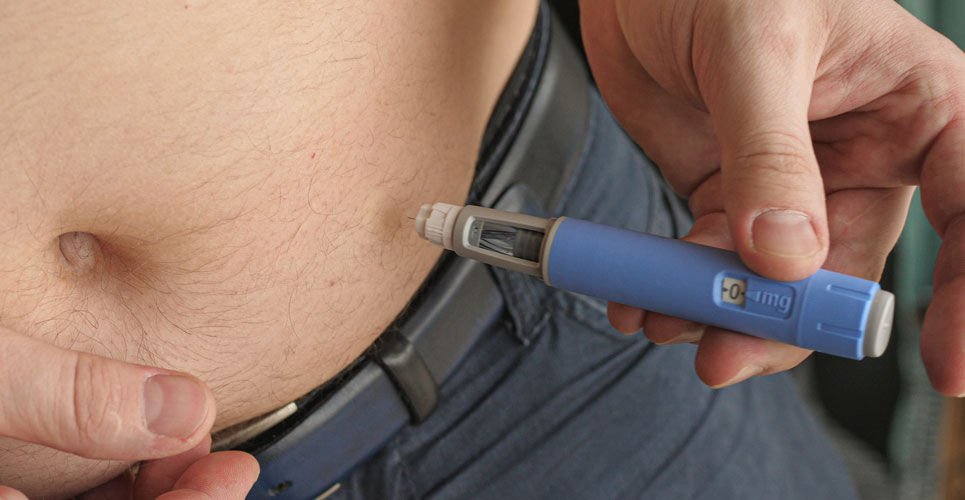NICE has recommended use of semaglutide with a reduced-calorie diet and increased physical activity as a therapeutic option for weight loss.
In a technology appraisal guidance, the UK’s NICE has recommended the use of semaglutide as part of a weight loss management strategy.
Obesity is a global health problem and the World Obesity Atlas 2023 report has estimated based on current trends, that overweight and obesity will affect over 4 billion people by 2035, reflecting an increase from 38% of the global population in 2020 to more than 50% in 2035.
Semaglutide (brand name Wegovy) has a current marketing authorisation ‘as an adjunct to a reduced-calorie diet and increased physical activity for weight management, including weight loss and weight maintenance, in adults with an initial body mass index (BMI) of ≥30 kg/m2 (obesity), or ≥27 kg/m2 to <30 kg/m2 (overweight) in the presence of at least one weight-related comorbidity.‘
Evidence for the effectiveness of the drug in weight loss was derived from the STEP 1 trial. This randomised, double-blind, placebo-controlled trial included nearly 2,000 adults with a body mass index (BMI) of 30 or more and individuals with a BMI of 27 but with ≥1 weight-related coexisting condition and who were not diabetic.
Participants received once weekly semaglutide 2.4 mg or placebo. After 68 weeks of treatment, participants receiving semaglutide saw a 14.9% mean decrease in their body weight compared to baseline compared to only 2.4% among placebo participants and this difference was statistically significant (p < 0.001).
Helen Knight, director of medicines evaluation at NICE, said: ‘Semaglutide won’t be available to everyone. Our committee has made specific recommendations to ensure it remains value for money for the taxpayer, and it can only be used for a maximum of two years.’
The 2019 Health Survey for England estimated that 28% of adults in England were obese and a further 36% were overweight and that Government estimates for the current NHS costs of obesity in the UK were £6.1 billion and £27 billion to wider society.

